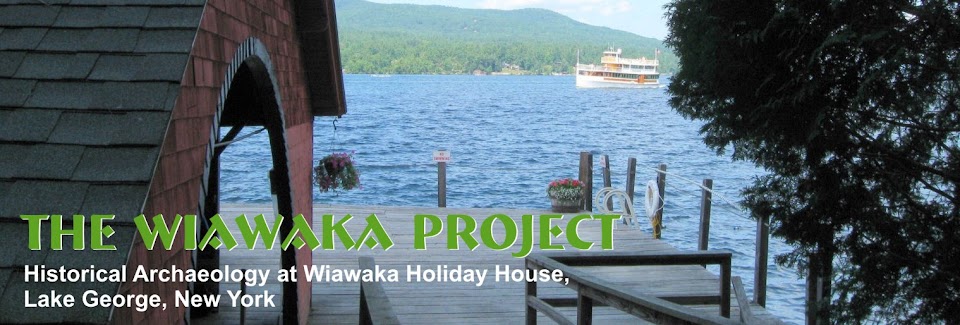The Reformative Power of Women's Leisure in Progressive-Era New York State, a session organized by Monica Mercado, a PhD candidate at the University of Chicago and myself has been accepted for the upcoming Conference on New York State History. The conference will be at Niagara University, near Buffalo, New York June 14-16, 2012. We don't know when our session will be, yet, but here are our participants:
"Summer School for the Soul: Women at the Catholic Summer School of America"
Monica L. Mercado, Co-Organizer and Presenter
PhD Candidate, Department of History, University of Chicago
"Girl Guests and The Spirit of God in Woman: Retreat and Reform at Wiawaka Holiday House, Lake George, New York"
Megan E. Springate, Co-Organizer and Presenter
PhD Student, Department of Anthropology, University of Maryland
"Appropriating Sherry's: Gotham, Space, and the Early Suffrage Movement"
Lauren Santangelo, Presenter
PhD Candidate, Department of History, The Graduate Center, CUNY
Nikki Mandell, Commenter
Associate Professor, Department of History, University of Wisconsin-Whitewater
This session will explore places and spaces across New York State where women have spent time outside the bounds of their ordinary day-to-day lives. From rural summer getaways to fashionable urban amusements, what can re-examining these places of leisure offer historians of women?
Lauren Santangelo's paper, "Appropriating Sherry's," examines the early woman suffrage movement's approach to spaces of commercial leisure in New York City from 1870 through 1910. using sources ranging from literature to diaries to suffrage newsletters, she argues that by the early twentieth century, suffragists were strategically mobilizing Gotham's most prestigious venues -- including restaurants, theaters, and even amusement parks -- in an effort to gain support, attention, and respectability. In the process, she suggests, they made suffrage entertaining.
Monica Mercado's paper, "Summer School for the Soul," uncovers the experiences of women attending the Catholic Summer School of America at Cliff Haven, in Plattsburgh, NY. Modeled on the Chatauqua movement, the Catholic Summer School functioned, Mercado suggests, as a co-ed site that allowed women to temporarily participate in a new upper middle-class American Catholic intellectual and cultural life during the 1890s and early 1900s.
Megan Springate's paper, "Girl Guests and the Spirit of God in Woman," explores the experiences of woman at Wiawaka Holiday House in Lake George, NY during its early years, beginning with its founding in 1903. Springate explores the intersections and contradictions of leisure, reform, religion, and class at the oldest continuously operating women's retreat in the United States.
In each example -- be it rural summer getaways or fashionable urban amusement -- these scholars suggest that women transformed spaces of leisure into potential sites of political action and intellectual and cultural development.
